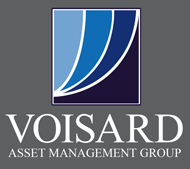How do you increase the valuation of a company before you plan to sell? As a business owner, you are used to strategizing to boost your profitability. Whether it is through improving or increasing your products, boosting your marketing, or lowering your overhead costs, a lot of your mental energy goes towards increasing your return on investment. It is easy to get stuck in that space of looking at how to increase revenue and cash flow from year to year while forgetting to plan for your long-term business valuation. You can–and should–operate your business with a longer-term view. While you’re making one, three, five, and ten-year plans to bring in more profitability, you should also be growing the value of your overall business.
Many business owners don’t think about this until they decide they want to sell, and once a financial analyst presents them with a valuation, they often realize they’d prefer to take a few more years to get that number up. For many, this can be a challenging as the thought of not only staying on for a few more years, but of having to put even more energy and intentionality into building the company, may just be too much to deal with.
Fortunately for the business owner who isn’t quite ready to sell, many strategies for building valuation can also boost your company’s profitability in the meantime. So, while you may be adding just a bit more to your plate by thinking about these strategies now, it will only compound your return on investment, in the short and long-term.
So, here are a few basic strategies for boosting your business’ valuation while you are still in the thick of running your business.
- Start Now. Wherever you are in your business, whether you are wanting to retire a decade or four decades from now, start building your business valuation now. The more time you have to increase the business valuation before you’re actually listing the business, the better.
- Tax Planning. When focusing on growing your business, you must also focus on how solid tax planning will keep more of your hard-earned dollars in your pocket and potentially expedite when you can sell your company. Increased earnings usually translate to increased taxation. By working with your accountant and a CERTIFIED FINANCIAL PLANNER™, you may discover ways to increase the value of your business while simultaneously shielding yourself from higher tax brackets. While accountants are often better at looking backwards, a CERTIFIED FINANCIAL PLANNER™ may be better equipped to plan for the future if they know and understand your long-term goals.
- Make Your Business Indispensable. Whether you are boosting valuation or sharpening your competitive edge, this is Business 101. But what it can mean for you in your long-term planning might be more specific. You obviously want to make sure you are offering a competitive product or service, and that your customers have plenty of reason to choose your business over others in the market. You also want to collect all of the intangible assets you might have available to you. A strong customer base and a prime geographical location within your market are valuable intangible assets. Additionally, having a unique product that you can get a patent on, or an idea you can copyright, may add value. Get your legal ownership of these things now. They will add significant value to your company, not just your yearly revenue.
- Make Yourself Replaceable. Your business’ ability to function without you is a significant asset. If the only reason your customers come back is because of you personally, or if you are the only person who can provide a quality version of the product or service your business offers, an investor is going to be highly reluctant to take over your business. If the whole establishment falls apart without you, then the business isn’t much of an investment if you’re the only part of it that doesn’t To do so, establish repeatable processes. Your customers should be receiving the same quality service or product every time. Have your processes in place, and make sure that your staff are all well-trained and consistent. Secondly, get a strong management team in place. Make sure that there’s no task that you do that no one else can do. Finally, go on vacation. Leave for a weekend, keep your cell phone on, and see how your staff do without you. Next vacation, take a whole week. Then another, and this time only have your phone on during certain hours. The ultimate goal: you should be able to leave your business in the hands of your management team for six months, and have operations continue smoothly.
- Strengthen Your Cash Flow. Cash is king when it comes to business valuation. Keep tight maintenance on your bookkeeping. Especially when you are in communication with a buyer, you’ll need strong records–but in the meantime, strong bookkeeping can help you track where your money is going, what’s being wasted, and how to widen your profit margin by cutting costs and boosting sales. Your cash flow is ultimately your gauge (and your potential buyers’ gauge) on how healthy your business is. Even if your revenue goes up year by year, it doesn’t mean much if your cash flow isn’t also remaining strong. Make sure you pay off more debt than you incur and try to keep that cash flow increasing each year, along with your annual revenue–so keep investing in your marketing and sales.
- Build a Diversified Customer Base. It’s important that you understand your customers and who your ideal customers are, as well as how to reach those ideal customers. Whether you’re talking about your company’s stability/profitability in the nearer future, or in its long-term valuation, it’s important to make sure that your customer base is diverse. If a large percentage of your revenue is from a small percentage of your customers, this can create unwanted volatility. In most cases, you want to keep your customer concentration low.
- Determine What You Need to Sell Your Business for in Order for you to Meet Your Goals. Often times business owners end up working longer than necessary because they don’t know how much they need to sell their business for in order to hit their retirement goals. By working with a CERTIFIED FINANCIAL PLANNER™, you may be able to sell your business years before you thought possible and enjoy more years with your family and loved ones. While increasing business value is important, a hearse comes unequipped with a luggage rack.
As we said before, many of these things are also just good practice in keeping your business profitable in the shorter-term. Ideally, strategizing for business valuation will align with strategizing for year-over-year growth, so that you won’t be adding too much extra responsibility to your plate if you start working towards longer term valuation.
It may come naturally to keep a tally on your tangible assets and invest your resources into acquiring more of these (such as updated equipment, or purchasing the real estate out of which your business operates). But make sure you are also boosting your intangible assets, because while these may be a bit tougher to take stock of, they do significantly affect your company’s overall valuation.
Looking for a valuation on your business? Start here.



